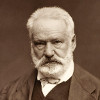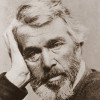“ Man's weakness makes him sociable. Our common sufferings draw our hearts to our fellow-creatures; we should have no duties to mankind if we were not men. ”
Jean-Jacques Rousseau, Emile, or On Education (1762). copy citation
| Author | Jean-Jacques Rousseau |
|---|---|
| Source | Emile, or On Education |
| Topic | weakness duty |
| Date | 1762 |
| Language | English |
| Reference | |
| Note | Translated by Barbara Foxley |
| Weblink | http://www.gutenberg.org/cache/epub/5427/pg5427-images.html |
Context
“Yes, I maintain, and I am not afraid of the testimony of experience, a youth of good birth, one who has preserved his innocence up to the age of twenty, is at that age the best, the most generous, the most loving, and the most lovable of men. You never heard such a thing; I can well believe that philosophers such as you, brought up among the corruption of the public schools, are unaware of it.
Man's weakness makes him sociable. Our common sufferings draw our hearts to our fellow-creatures; we should have no duties to mankind if we were not men. Every affection is a sign of insufficiency; if each of us had no need of others, we should hardly think of associating with them. So our frail happiness has its roots in our weakness. A really happy man is a hermit;”
source



